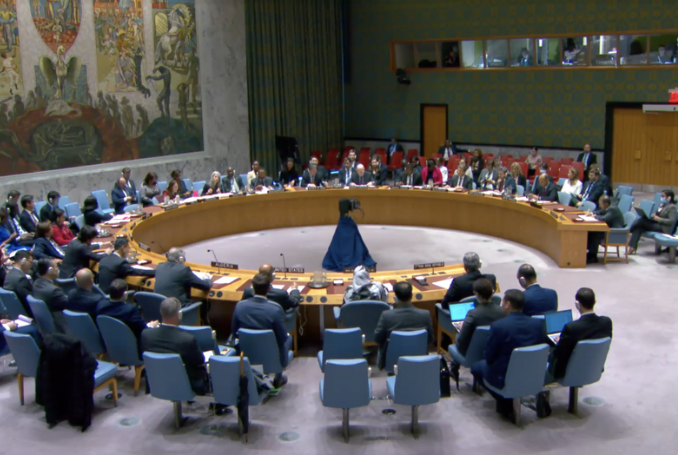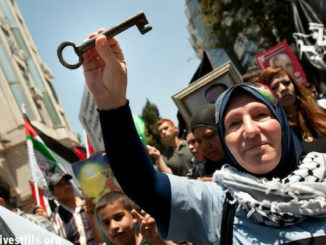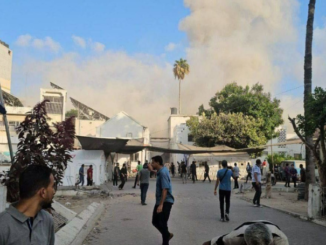
The Swiss Council President said the session came at the request of Iran with the support of Algeria, China and Russia.
The United Nations Security Council is scheduled to meet on Monday to discuss the Israeli attack on Iran, said Switzerland, the council’s president for this month, Reuters news agency reported.
The meeting was requested by Iran with the support of Algeria, China and Russia as the council’s president said.
The Israeli Ambassador to the UN, Danny Danon, rebuffed in a statement on Sunday Tehran’s complaint at the international organization.
He stated: “trying to act against us in the diplomatic arena with the ridiculous claim that Israel has violated international law.”
“As we have stated time and time again, we have the right and duty to defend ourselves and will use all the means at our disposal to protect the citizens of Israel,” the Israeli ambassador was quoted as saying by Reuters.
On his part, the UN Secretary-General Antonio Guterres called on “all parties to cease all military actions, including in Gaza and Lebanon, exert maximum efforts to prevent an all-out regional war and return to the path of diplomacy,” according to a statement by his spokesperson on Saturday.
Israel’s Attack on Iran
The Israeli attack, which lasted nearly four hours and spanned Tehran, Khuzestan, and Ilam, was met with widespread condemnation and calls for restraint from the international community, but also with varying degrees of support from Israel’s allies.
Iran’s air defense forces said that Israeli attacks targeted several sites across the Tehran, Khuzestan, and Ilam provinces early on October 26, noting that these assaults were successfully intercepted and neutralized.
In a statement, Iran’s air defense authorities underscored that despite prior warnings issued by Islamic Republic officials to Israel against initiating “any adventurous action,” the attacks reportedly targeted several military centers in Tehran, Khuzestan, and Ilam, escalating regional tensions.
The Iranian air defense system managed to counter these acts of aggression, preventing significant impact, according to the statement.
However, the statement also mentioned that limited damage occurred in some areas, with further investigation ongoing to assess the full extent.
The Iranian army announced on the morning of October 26 the killing of two soldiers while confronting the Israeli attack, without any reports of civilian deaths, and the extent of material losses at the targeted military sites is not yet clear.
Israeli Claims Denied
For its part, Israel announced that its military launched strikes on 20 sites across Iran, carried out in three separate waves. However, according to Tasnim News Agency, informed sources in Iran disputed this figure, suggesting that the actual number of targets was significantly lower.
Israeli military spokesperson Daniel Hagari claimed that these strikes focused on dismantling Iran’s surface-to-air and surface-to-surface missile systems, as well as degrading its air defense capabilities.
ABC News cited an Israeli source who specified that the attacks targeted locations storing missiles, drones, and weapons-production facilities.
For its part, Tasnim News denied that any Islamic Revolutionary Guard Corps (IRGC) sites in Tehran were affected.
Additionally, Israeli authorities claimed that more than 100 aircraft, including F-35 fighter jets and drones, participated in the operation and returned safely to Tel Aviv. However, Iranian media, citing local sources, stated that the operation involved “small flying objects” which were intercepted before inflicting significant damage. In addition, Tasnim reported that the strikes were carried out from beyond Iranian borders.
Israeli sources also said that the operation began with an assault on Iranian air defense positions, steering clear of the country’s energy infrastructure. An Iranian source claimed, however, that Israel was overstating the impact of its actions, which they described as limited.
Al-Jazeera’s correspondent in Tehran confirmed normal activity in the affected cities, noting that business operations and road traffic continued uninterrupted. Both Mehrabad and Imam Khomeini airports were unaffected, with flights resuming by 9 am local time.
(PC, MEMO)









So what?? BLAHBLAHBLAH, more bullsh!t. Stop talking about it and get it done already.